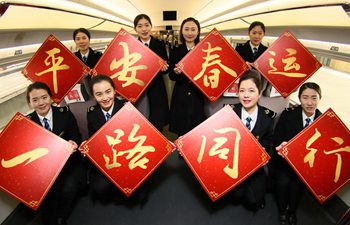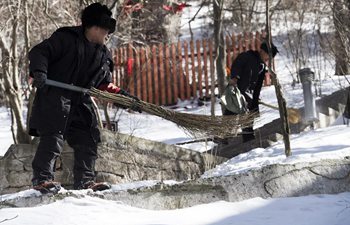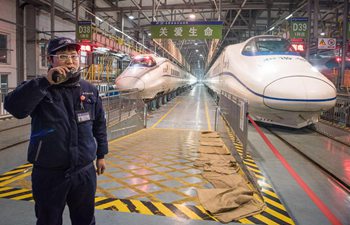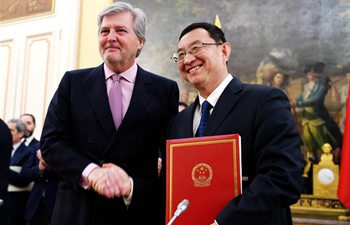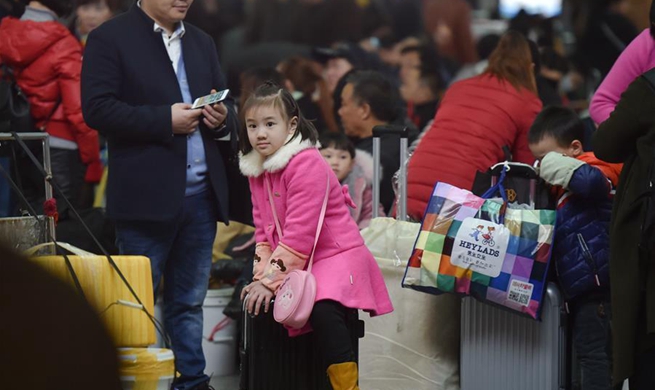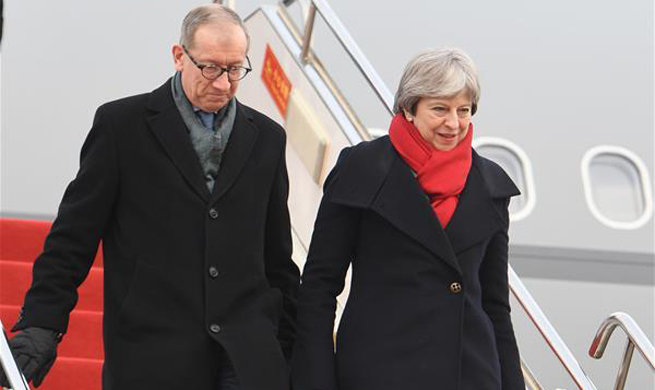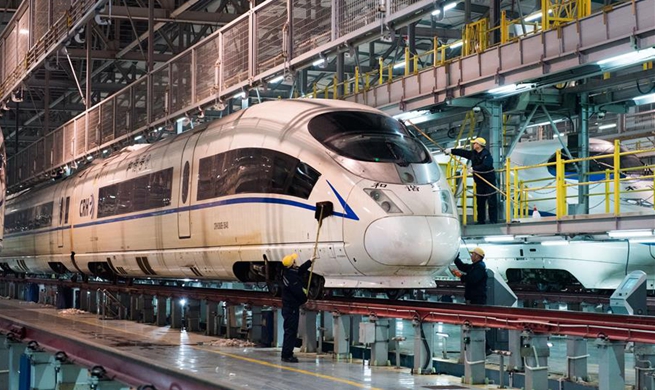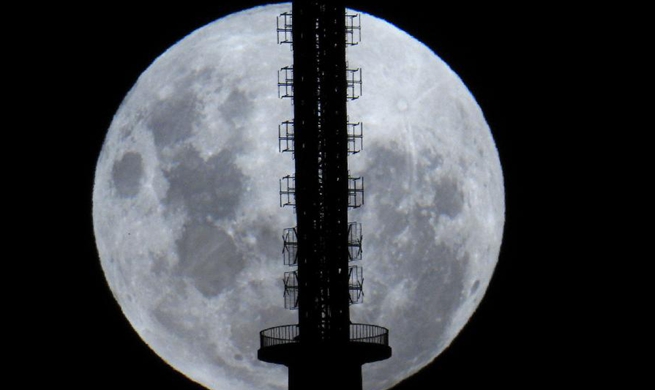WASHINGTON, Jan. 30 (Xinhua) -- U.S. President Donald Trump outlined his second-year agenda in his maiden State of the Union (SOTU) address on Tuesday night, focusing on infrastructure, immigration and national security.
Despite the president's attempt to win bipartisan support, analysts say obstacles remain to cooperation between Republicans and Democrats.
INVESTING IN INFRASTRUCTURE
Trump started his speech by touting the high stock markets and low unemployment in the past year under his presidency along with tax cuts as the foundation for what he claimed to be a "new American moment".
After expressing expectations of "fair and reciprocal" trade relationships with others, Trump asked both parties in Congress to pass an infrastructure bill so as to create 1.5 trillion U.S. dollars of investment.
He advocated using federal government funds as incentives to stimulate state and local government funds as well as private capital in infrastructure investment.
In order to do so, Trump also called on lawmakers to streamline the approval process for infrastructure investment by shortening it to no more than two years.
A statement released by the White House on Tuesday said the administration will also enhance its support for infrastructure projects in rural areas.
Darrell West, a senior fellow at the Washington-based think tank Brookings Institution, told Xinhua that infrastructure might be the only possibility for bipartisanship.
"That may be an area where the parties could come together because each side understands the need to rebuild bridges, highways and dams," West said.
But Christopher Galdieri, assistant professor at Saint Anselm College in New Hampshire, said "Trump is seeking too large a role for private partners for many Democrats to be comfortable."
"There aren't the Republican votes to pass a plan like the one he sketched without Democratic votes," he said.
IMMIGRATION OVERHAUL
Immigration is one of the policy areas where the Trump administration would like to see legislative progress. During the nearly 90-minute speech, Trump said criminals, including MS-13, the international criminal gang, were taking advantage of "outdated immigration rules".
The Republican president also tried to adopt a bipartisan tone on immigration overhaul, calling his proposal a fair compromise that should be supported by both parties.
His remarks came after an impasse over the fate of nearly 1 million young illegal immigrants had led to a government shutdown earlier this month.
Trump urged both parties to set politics aside and "finally get the job done," laying out his framework for immigration legislation that includes a path to citizenship for 2 million illegal immigrants and securing the border by building a wall on the southern border with Mexico.
He also called for an end to the visa lottery and chain migration while adopting a merit-based immigration system in favor of applicants with skills needed by the country.
Trump said those pillars "represent a down-the-middle compromise, and one that will create a safe, modern, and lawful immigration system." But he drew protests from Democratic lawmakers when detailing some of those proposals.
West said it is hard to see how the two sides can do much in this area as the president still wants a wall, which the Democrats will not support.
NATIONAL SECURITY
Renewing one of his campaign promises, Trump urged lawmakers to end what he called a "dangerous defense sequester" and fully fund the U.S. military.
Calling for efforts to modernize and rebuild the nuclear arsenal, Trump said while hopefully the U.S. would never have to use it, the arsenal would make it capable of deterring "any acts of aggression".
In a reexamination of the military detention policy, Trump said he had signed an order to keep open the detention camp at Guantanamo Bay in Cuba, which was set up in 2002 as part of the U.S. war on terror.
The president also pledged to continue the anti-terrorism fight until the Islamic State terrorist group was defeated, urging the Congress to ensure all necessary resources in the fight against terrorists.
As for his foreign policy, Trump took a tough stance, calling Iran, Cuba, Venezuela and the Democratic People's Republic of Korea "adversaries".
While urging the Congress to address the "fundamental flaws" in the Iran nuclear deal, he also defended his "maximum pressure" campaign against Pyongyang's nuclear development project.
(Matthew Rusling in Washington contributed to the report.)




